Hyundai IONIQ 5 VS Peugeot 408 – Specs, Efficiency & Price Comparison
Which model is the better choice – the Hyundai IONIQ 5 or the Peugeot 408? We compare performance (609 HP vs 225 HP), boot capacity (520 L vs 536 L), efficiency (15.60 kWh vs 15.10 kWh1.40 L), and of course, the price (37600 £ vs 34300 £).
Find out now which car fits your needs better!
The Hyundai IONIQ 5 (SUV) is powered by a Electric engine and comes with a Automatic transmission. In comparison, the Peugeot 408 (SUV) features a Plugin Hybrid, Electric or Petrol MHEV engine and a Automatic gearbox.
When it comes to boot capacity, the Hyundai IONIQ 5 offers 520 L, while the Peugeot 408 provides 536 L – depending on what matters most to you. If you’re looking for more power, you’ll need to decide whether the 609 HP of the Hyundai IONIQ 5 or the 225 HP of the Peugeot 408 suits your needs better.
There are also differences in efficiency: 15.60 kWh vs 15.10 kWh1.40 L. In terms of price, the Hyundai IONIQ 5 starts at 37600 £, while the Peugeot 408 is available from 34300 £.
Compare all the key specs now and find out which model fits your lifestyle best!
Hyundai IONIQ 5
The Hyundai IONIQ 5 showcases a bold and futuristic design that captures attention with its striking facade and sharp lines. This electric vehicle offers an impressive blend of performance and efficiency, making it a compelling choice for environmentally conscious drivers. Inside, the spacious and tech-forward interior provides a comfortable and engaging driving experience for both driver and passengers.
details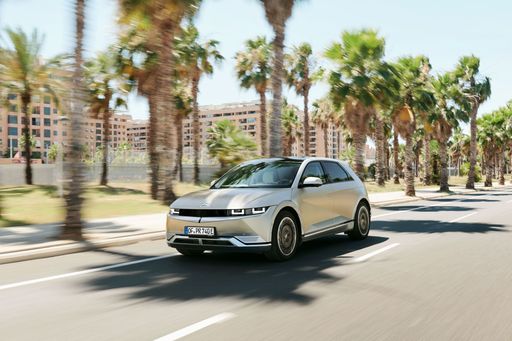 @ hyundai.news
@ hyundai.news
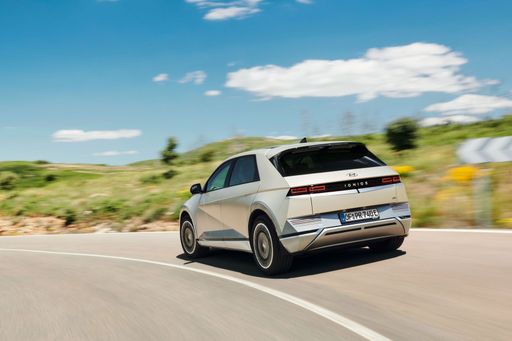 @ hyundai.news
@ hyundai.news
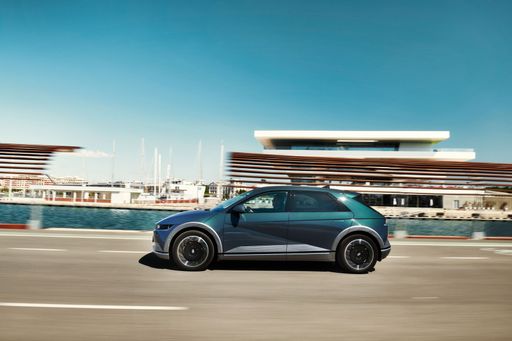 @ hyundai.news
@ hyundai.news
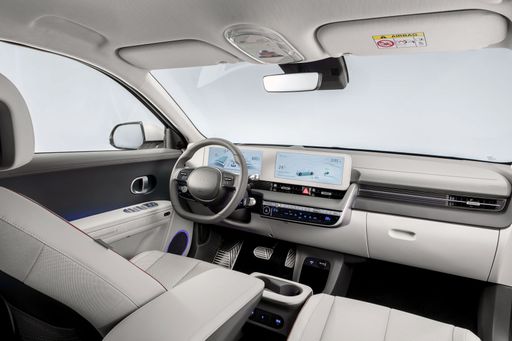 @ hyundai.news
@ hyundai.news
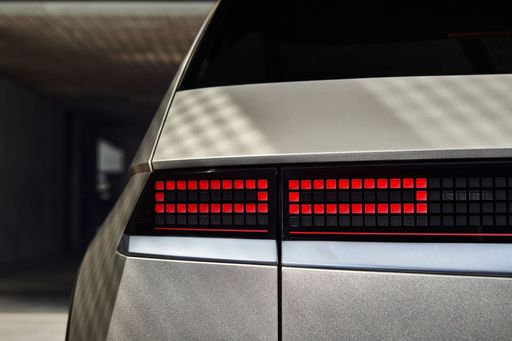 @ hyundai.news
@ hyundai.news
Peugeot 408
The Peugeot 408 captivates with its sleek and dynamic design, setting it apart in the competitive crossover market. Its interior offers a perfect blend of comfort and cutting-edge technology, creating an enjoyable driving experience. The model's efficient performance and modern features make it a compelling choice for those seeking both style and functionality in their vehicles.
details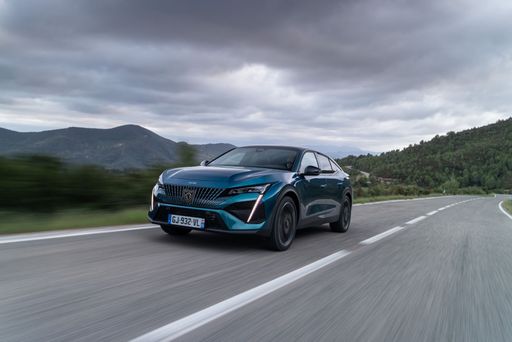 @ media.stellantis.com
@ media.stellantis.com
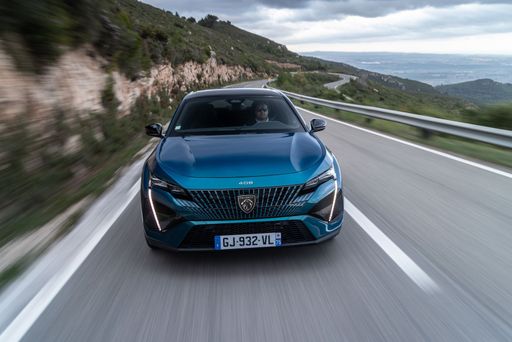 @ media.stellantis.com
@ media.stellantis.com
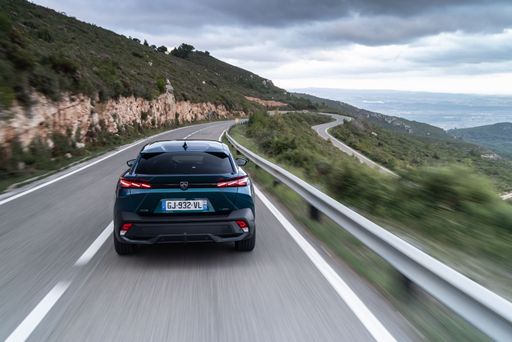 @ media.stellantis.com
@ media.stellantis.com
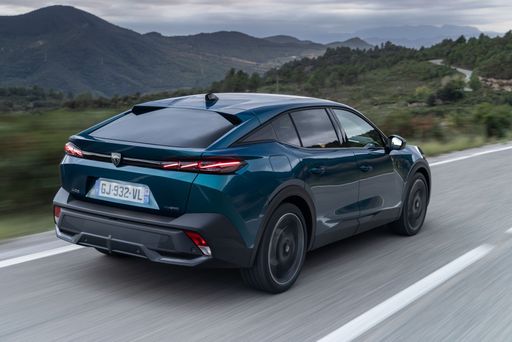 @ media.stellantis.com
@ media.stellantis.com
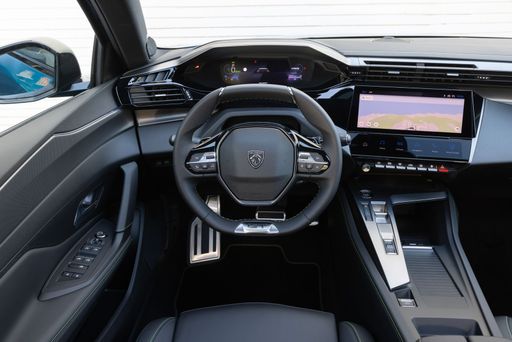 @ media.stellantis.com
@ media.stellantis.com

|

|
|
|
|
Costs and Consumption |
|
|---|---|
|
Price
37600 - 64200 £
|
Price
34300 - 44400 £
|
|
Consumption L/100km
-
|
Consumption L/100km
1.4 - 5.1 L
|
|
Consumption kWh/100km
15.6 - 21.2 kWh
|
Consumption kWh/100km
15.10 kWh
|
|
Electric Range
440 - 570 km
|
Electric Range
63 - 453 km
|
|
Battery Capacity
63 - 84 kWh
|
Battery Capacity
11.3 - 58.2 kWh
|
|
co2
0 g/km
|
co2
0 - 114 g/km
|
|
Fuel tank capacity
-
|
Fuel tank capacity
40 - 52 L
|
Dimensions and Body |
|
|---|---|
|
Body Type
SUV
|
Body Type
SUV
|
|
Seats
5
|
Seats
5
|
|
Doors
5
|
Doors
5
|
|
Curb weight
1955 - 2275 kg
|
Curb weight
1544 - 1879 kg
|
|
Trunk capacity
480 - 520 L
|
Trunk capacity
471 - 536 L
|
|
Length
4655 - 4715 mm
|
Length
4687 mm
|
|
Width
1890 - 1940 mm
|
Width
1848 mm
|
|
Height
1585 - 1605 mm
|
Height
1478 mm
|
|
Payload
385 - 530 kg
|
Payload
371 - 456 kg
|
Engine and Performance |
|
|---|---|
|
Engine Type
Electric
|
Engine Type
Plugin Hybrid, Electric, Petrol MHEV
|
|
Transmission
Automatic
|
Transmission
Automatic
|
|
Transmission Detail
-
|
Transmission Detail
Automatikgetriebe, Automat. Schaltgetriebe (Doppelkupplung)
|
|
Drive Type
Rear-Wheel Drive, All-Wheel Drive
|
Drive Type
Front-Wheel Drive
|
|
Power HP
170 - 609 HP
|
Power HP
145 - 225 HP
|
|
Acceleration 0-100km/h
3.5 - 8.5 s
|
Acceleration 0-100km/h
7.2 - 9.4 s
|
|
Max Speed
185 - 260 km/h
|
Max Speed
160 - 233 km/h
|
|
Torque
350 - 740 Nm
|
Torque
230 - 360 Nm
|
|
Number of Cylinders
-
|
Number of Cylinders
4
|
|
Power kW
125 - 448 kW
|
Power kW
107 - 165 kW
|
|
Engine capacity
-
|
Engine capacity
1199 - 1598 cm3
|
General |
|
|---|---|
|
Model Year
2024
|
Model Year
2024 - 2025
|
|
CO2 Efficiency Class
A
|
CO2 Efficiency Class
B, A, C
|
|
Brand
Hyundai
|
Brand
Peugeot
|
Hyundai IONIQ 5
Introducing the Hyundai IONIQ 5: A New Era in Electric Mobility
The Hyundai IONIQ 5 is a revolutionary addition to the electric car market, blending futurist aesthetics with ingenious technological features. As part of Hyundai's all-electric lineup, the IONIQ 5 exudes a refreshing approach to sustainable motoring, offering a blend of power, efficiency, and innovation that is set to transform everyday driving.
A Futuristic Design
The IONIQ 5 sets new standards in automotive design with its distinctive silhouette. Its clamshell bonnet and pixelated LED light design form a unique visual signature, evoking a sense of modernity and advancement. Built on Hyundai's Electric-Global Modular Platform (E-GMP), this SUV heralds a new direction for electric vehicles, serving both form and function with a flat floor that maximises interior space.
Performance and Efficiency
The Hyundai IONIQ 5 offers a variety of powertrains to cater to different driving preferences. Depending on the model, power output ranges from 170 PS to a staggering 609 PS, with corresponding torque between 350 Nm and 740 Nm. These configurations enable a brisk acceleration capability, reaching 0-100 km/h in as little as 3.5 seconds.
The car’s battery options of 63 kWh and 84 kWh provide flexibility between range and performance. The efficiency of the IONIQ 5 is admirable, with a consumption ranging from 15.6 to 21.2 kWh/100km, ensuring the capability to travel up to 570 km on a single charge.
Innovative Technology
The IONIQ 5 isn't just about efficient propulsion; it's laden with cutting-edge technology that enhances the driving experience. The vehicle includes an ultra-fast charging capability, able to reclaim 80% of the battery life within just 18 minutes. This is complemented by Vehicle-to-Load (V2L) technology, which turns the IONIQ 5 into a power source to charge devices or even other electric vehicles.
Comfort and Convenience
Inside, the IONIQ 5 continues to impress with a spacious and flexible cabin that maximises comfort and utility. Its minimalist dashboard, dual 12.3-inch screens for infotainment and digital instrument cluster, and extensive use of eco-friendly materials contribute to a serene driving environment.
Safety Meets Innovation
Hyundai has equipped the IONIQ 5 with an array of advanced driver assistance systems. These include features such as Smart Cruise Control, Highway Driving Assist, and Remote Smart Parking Assist, ensuring that safety is paramount without sacrificing convenience.
The Future of Sustainable Driving
With a CO2 efficiency class of A and zero emissions, the Hyundai IONIQ 5 signifies a shift towards more sustainable driving practices. Its blend of technology, performance, and aesthetic appeal positions it as a pivotal player in the electric vehicle market, paving the way for a cleaner, greener future in automotive design.
Peugeot 408
The New Lion on the Block: The Peugeot 408
As Peugeot continues to innovate within the SUV segment, the latest iteration of the Peugeot 408 sets new standards in technology, efficiency, and design. With its cutting-edge engineering and innovative features, the Peugeot 408 is more than just a stylish SUV—it's a marvel of modern automotive technology. This article dives into the technical details and innovations that make the Peugeot 408 a highly compelling choice for consumers in the market for a new vehicle.
A Glimpse into the Engine Bay: Performance and Efficiency
The Peugeot 408 comes with a diverse range of powertrains that blend performance and fuel efficiency. Featuring a selection of petrol mild-hybrid, petrol, and plug-in hybrid options, the 408 caters to a variety of driving preferences. The engines have a power output ranging from 131 to 225 PS, ensuring that there's a version suited to both city commutes and highway cruising.
Fuel economy is a significant focus, with consumption figures spanning from an impressive 1.5 L/100km for the plug-in hybrid models to a moderate 6.1 L/100km for the traditional petrol engines. Additionally, the plug-in hybrid versions boast an electric range of up to 55 kilometres, ideal for reducing emissions during shorter journeys.
Ultimate Comfort and Technology in the Cockpit
Peugeot excels in creating interiors that provide both comfort and cutting-edge technology. The 408 doesn't disappoint in this regard. It offers a spacious cabin, accommodating up to five passengers, with high-quality materials and ergonomic designs that enhance the driving experience.
The infotainment system in the Peugeot 408 is state-of-the-art, featuring a responsive touchscreen interface, premium sound options, and seamless connectivity with smartphones. Advanced driver-assistance systems such as adaptive cruise control, lane-keeping assist, and automated emergency braking ensure that journeys are not only comfortable but also safe.
Design Meets Function: Exterior and Practicality
In the realm of exterior design, Peugeot has delivered a striking silhouette with aerodynamic lines and a robust SUV stance. Measuring 4687 mm in length, 1848 mm in width, and 1478 mm in height, the 408 boasts a dynamic presence on the road without compromising on practicality.
Practicality is further enhanced by a generous boot space that ranges from 471 to 536 litres, depending on the model, making it perfect for family trips or weekend getaways. A high payload capacity and thoughtfully designed storage solutions ensure that the Peugeot 408 remains versatile, able to adapt to various lifestyle needs.
Environmental Responsibility and Sustainable Driving
With a keen eye on sustainability, the Peugeot 408 offers an impressive CO2 efficiency rating. The plug-in hybrid versions, in particular, present a substantial reduction in carbon emissions, operating at as low as 33 g/km. This makes the 408 a viable option for environmentally conscious consumers seeking to minimise their carbon footprint.
The automaker's commitment to sustainability does not end at emissions. The materials used in the 408's construction are carefully selected to promote durability and recyclability, ensuring that the vehicle maintains a lower impact on the environment throughout its lifecycle.
Conclusion: The Perfect Blend of Innovation and Tradition
The Peugeot 408 is a remarkable illustration of Peugeot's ability to blend traditional automotive values with the latest technological advancements. Its innovative powertrains, luxurious interiors, and forward-thinking design make it a formidable contender in the competitive SUV market. Whether you prioritise fuel economy, driving performance, or cutting-edge technology, the Peugeot 408 is poised to meet and exceed expectations. As Peugeot advances into the future, the 408 leads the charge as a testament to the brand's relentless pursuit of excellence.
The prices and data displayed are estimates based on German list prices and may vary by country. This information is not legally binding.
